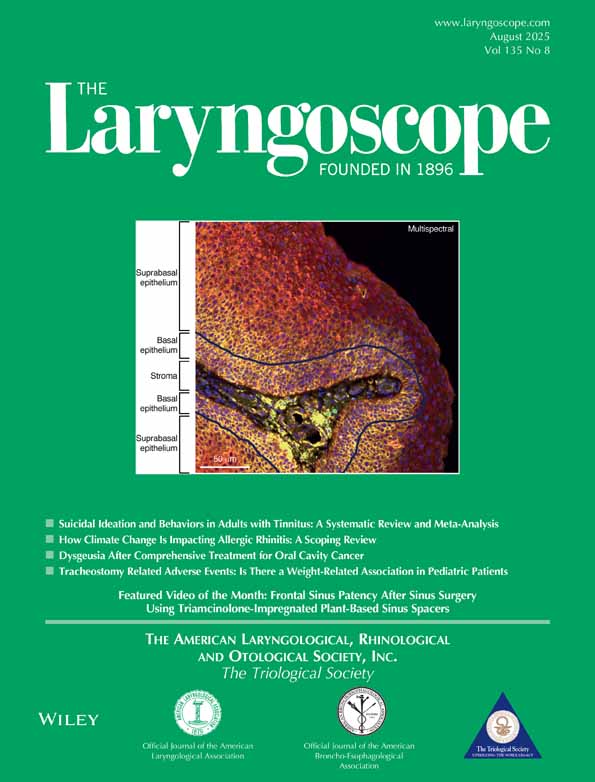Proliferation Potential in Recurrent Acoustic Schwannoma Following Gamma Knife Radiosurgery versus Microsurgery†
Presented at the Western Section Meeting of the Triological Society, Pasadena, CA, February 3, 2002.
Abstract
Objective To evaluate the proliferation potential of recurrent acoustic schwannoma following gamma knife radiosurgery (GKR) versus microsurgery.
Study Design Retrospective study.
Methods A review of surgical records of the House Ear Clinic revealed 8 patients who had undergone GKR and 15 patients who had undergone microsurgery who had unilateral acoustic schwannoma recurrences. Immunohistochemical studies were performed to evaluate the expression of proliferating cell nuclear antigen (PCNA) on archival paraffin-embedded blocks.
Results All 8 GKR and 15 microsurgical tumors had positive staining for PCNA. The recurrent GKR tumors had significantly lower proliferation levels than in the microsurgical group (P = .03). Two GKR tumors had high proliferation levels.
Conclusions Our study indicates that recurrent vestibular schwannomas treated with GKR have lower proliferation potential as assessed by PCNA compared with recurrences following microsurgery. Radiation-induced apoptosis is thought to contribute to the lower tumor cell proliferation in GKR tumor. The two GKR tumors with high proliferation potential could be a result of radiation-induced sporadic mutation, resulting in high tumor cell proliferation.




